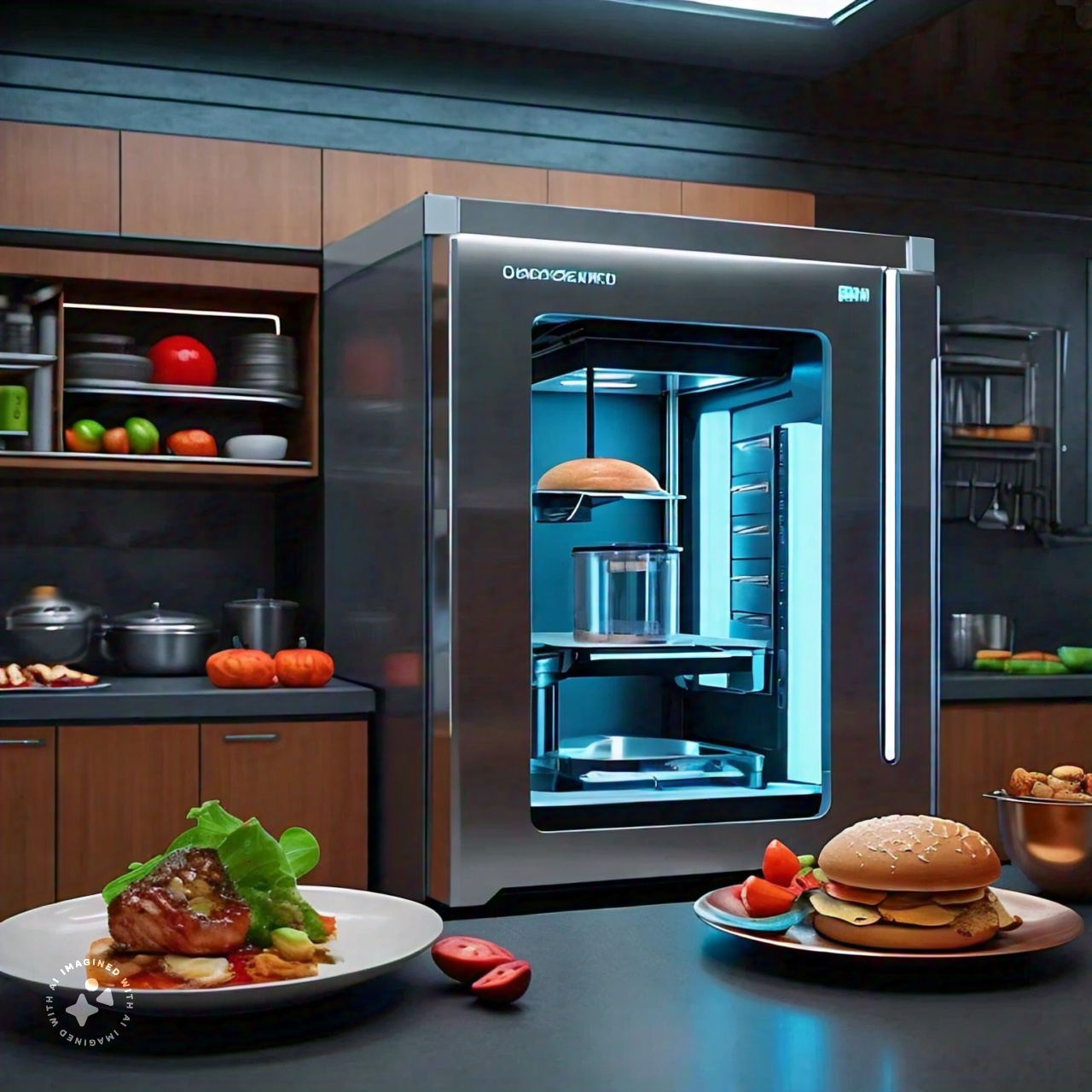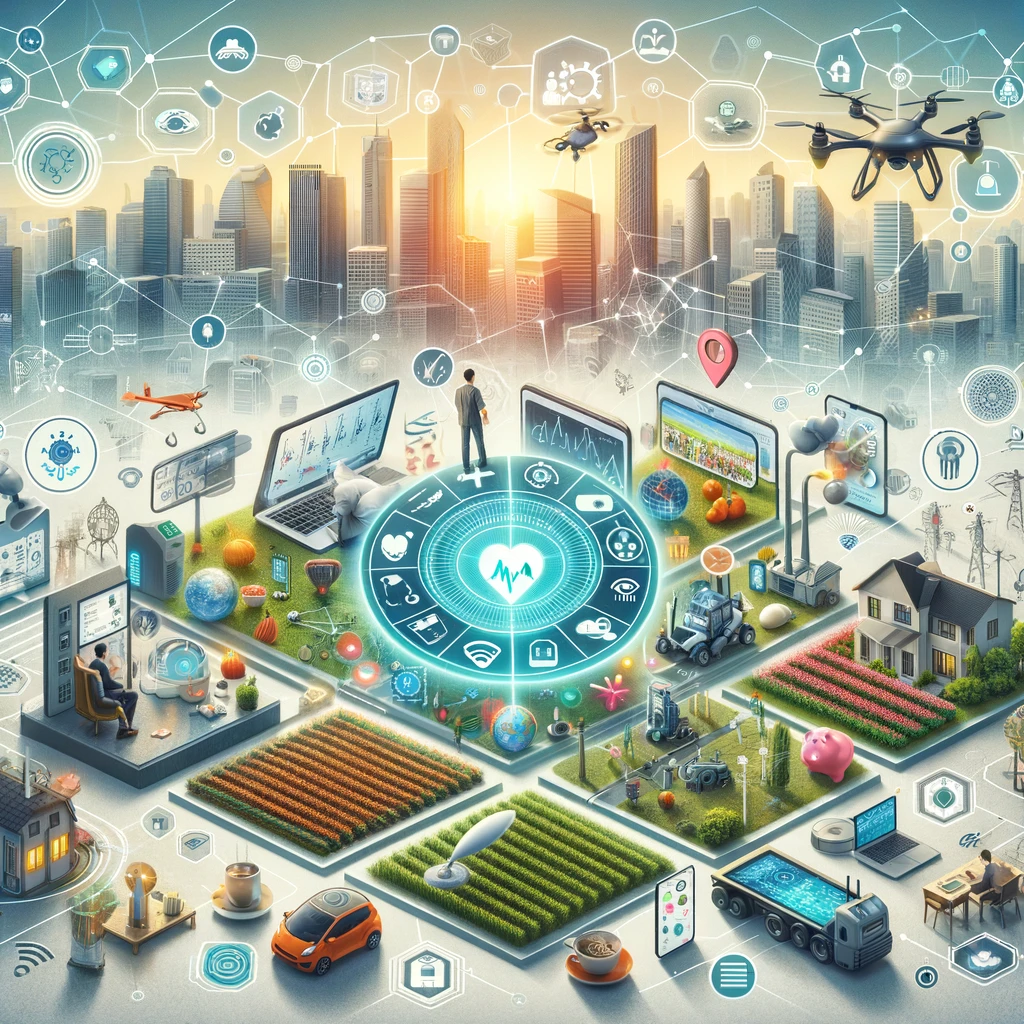How Tech is Revolutionizing the Food Industry

Table of Contents
- 1 Agriculture and Cultivation
- 2 Organizing and Managing Foods
- 3 Planning and Conveyance of Food
- 4 Quality Assurance and Sanitation
- 5 Experience of Purchasing
- 6 Technology’s Benefits for the Food Industry
- 7 Governments must establish clear regulations around the use of technology in the food business in order to guarantee that innovation is balanced with safety and quality.
The major revolution occurring in the food business is primarily due to technology. Technology is transforming the food supply chain at every stage, from the farm to the plate, to increase customer focus, sustainability, and efficiency. We’ll look into how innovation is affecting the food industry and what lies ahead in this piece.
Agriculture and Cultivation
The way we develop and produce food is evolving due to innovation. Ranchers may increase agricultural yields, reduce waste, and mitigate natural effects with accuracy farming, which makes use of cutting-edge technologies like robotics, satellite photography, and sensors. Vertical farming, which grows crops in layers stacked higher than horizontally, is also becoming more and more popular as a way to expand production in smaller areas.
Organizing and Managing Foods
Technology is streamlining the handling, assembling, and storage of food, making it more efficient, secure, and rapid. By replacing manual labor with mechanization and mechanical technology, the risk of tainting is reduced, and item quality is further improved. New product development and an extension of the realistic usability period are being facilitated by innovative technologies such as high-pressure handling and ultrasonic cleaning.
Planning and Conveyance of Food
Food consumption habits have evolved due to the rise of meal delivery services and feast unit administrations. Thanks to technology, clients can now place online orders for food, follow deliveries in real time, and leave reviews. In addition to reducing food waste and ensuring that products reach customers more quickly, coordinated elements and store networks across the board are becoming increasingly effective.
Quality Assurance and Sanitation
Our food will always be of higher quality and greater safety thanks to innovation. Reducing the risk of foodborne illnesses by detecting contaminants and contaminations with advanced sensors and testing breakthroughs. Furthermore, enabling more noticeable clarity and discernibility, blockchain technology makes it easier to identify and evaluate products.
Experience of Purchasing
Innovation is revolutionizing the shopping experience by enabling us to pay with our phones, book meals online, and even prepare meals with the assistance of distant workers. Customers are increasingly looking for manageable, reliable, and Instagrammable options when it comes to food, and this is partly influenced by online entertainment and powerful displaying.
Technology’s Benefits for the Food Industry
Increased Productivity: Technology is allowing for the simplification of processes, the reduction of waste, and an increase in productivity.
Enhanced security: Cutting edge sensors and testing advancements ensure that our food is safer and of higher quality.
Sustainability: Innovation is enabling more sensible farming practices, reducing the impact on the environment, and developing environmentally friendly products.
Customer-Centric: Innovation is enabling customers to track deliveries, schedule meals online, and review their experiences, thereby increasing buying power within the company.
Data Privacy: Obstacles and Prospects In order to ensure that customer information is protected, the company needs to address concerns around information security and security.
Governments must establish clear regulations around the use of technology in the food business in order to guarantee that innovation is balanced with safety and quality.
Abilities Hole: The company needs to make sure that workers have the basic skills necessary to collaborate with creativity by addressing the advanced abilities gap.
Moral Considerations: The company needs to make sure that innovation is used ethically and dependably by addressing moral considerations around its use.
In Summary
Innovation is revolutionizing the food industry, transforming every aspect of the retail chain, from farm to plate. We can anticipate seeing much more inventive uses as innovation progresses, from lab-created beef to personalized nourishment. The future of food is exciting, and innovation is the fundamental issue propelling this transformation.





